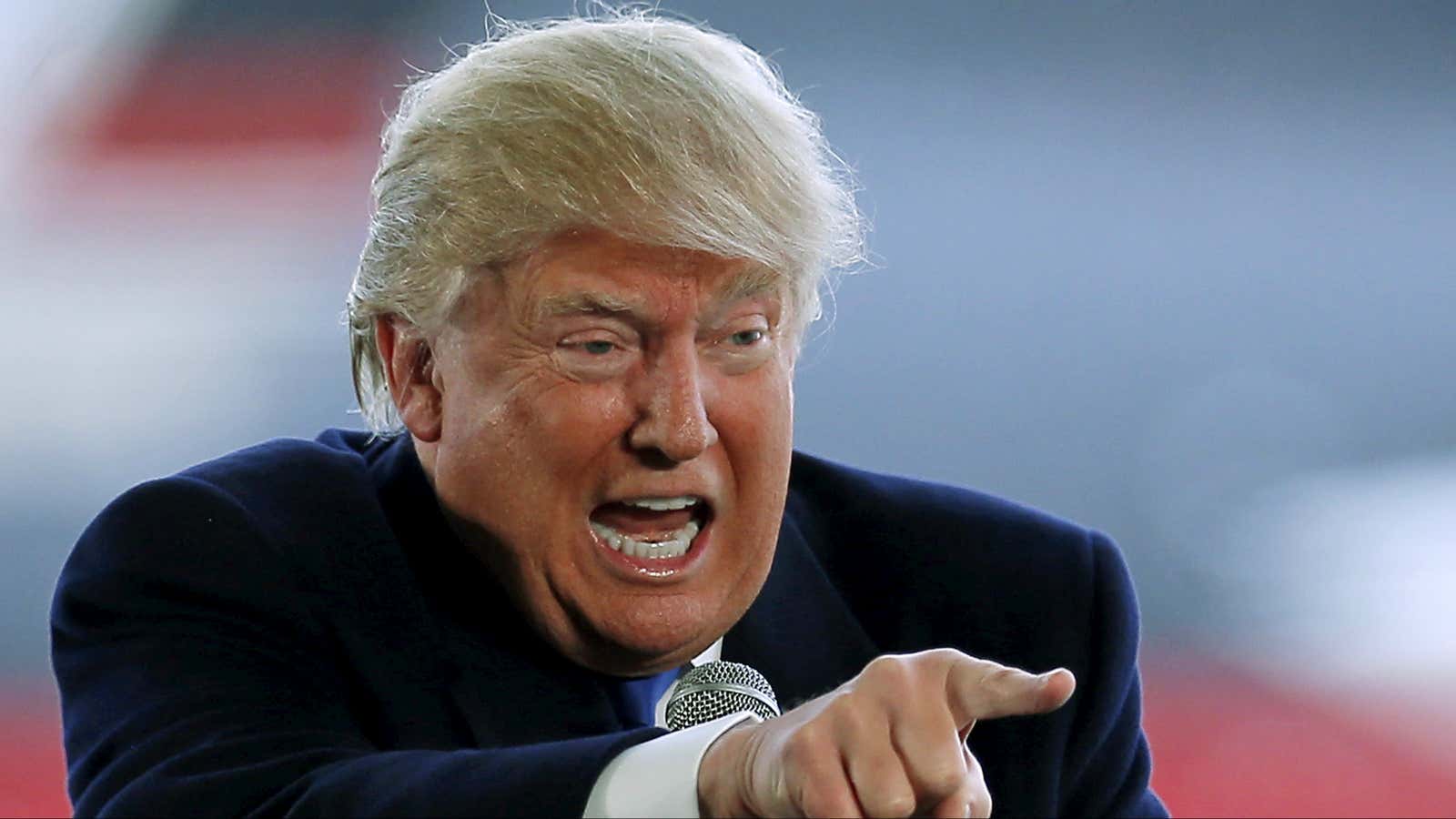What was maybe most intriguing about Donald Trump’s sweeping tirade against Hillary Clinton in his speech yesterday was his accusations of self-absorption and shady business dealings—two charges frequently directed at Trump himself.
“Her campaign slogan is ‘I’m with her.’ You know what my response to that is? I’m with you: the American people,” he said. “She thinks it’s all about her.”
Quoting from a book by one of Clinton’s secret service agents, Trump said she was “disdainful of the rules set for everyone else.”
He then argued Clinton was maybe “the most corrupt person ever to seek the presidency,” excoriating her for not releasing the text of her speeches to investment banks. Claiming she has been bankrolled by oppressive foreign regimes, he cast himself as a champion of women.
“Hillary Clinton has perfected the politics of personal profit and even theft,” said Trump. “She ran the state department like a hedge fund doing favors for oppressive regimes, and many others, in exchange for cash.”
Charging Clinton with wanton egotism might seem a little rich coming from a man who has long used the campaign trail as a springboard for self-promotion—a man whom renowned psychologists have identified as a textbook narcissist.
Whatever he might claim of Clinton, Trump’s campaign actually is all about him. His case for the presidency rests not on concrete plans but on his personal qualities—his smarts, toughness, courage, and business instincts. Trump’s overarching campaign promise isn’t a set of values or policy goals. It’s that voters will get an amazingly awesome guy for president.
As for disdaining rules, Trump’s stiffing of creditors, investors, and (allegedly) workers and small business contractors make for a pretty vitreous house from which he’s pelting Clinton. Moreover, throughout his campaign, Trump has seemed to take pride in defying conventional election wisdom. Of the delegate process, he even said, “I don’t care about rules, folks.”
And while the Clintons’ financial activities are indeed due more scrutiny, Trump’s past—not just Trump University but his legal track record, slew of bankruptcies, and bank bailout—cast a broad swath of shadiness of their own. He also refuses to release his own federal tax returns. And his track record with women involves promoting them mainly as sex objects.
Clinton’s Trump takedown in her speech the previous day hewed from the Karl Rovian strategy of attacking a candidate’s perceived strength (see here: George W. Bush’s “swift boat” attack on Democratic challenger John Kerry in 2004). Trump’s approach—spinning your own weaknesses into those of your opponent—is another classic Machiavellian political tactic. Perhaps most notoriously, the three Republican leaders—Newt Gingrich, Bob Livingston, and Dennis Hastert—who spearheaded attacks on president Bill Clinton for extramarital affairs, culminating in his impeachment by the House of Representatives, all had extensive histories of sexual misconduct of their own. (That’s understating it a bit for Hastert, a serial pedophile.)
Those sure were some dark days in American presidential history. But these ones, too, are threatening to get just as ugly.
